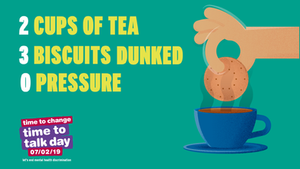Self Harm: Recovery is Possible
- Feb 15, 2015
- 3 min read
According to a BBC Health report published Dec 2014, the number of young people admitted to hospital for self-harm is at a 5 year high with figures stating that 6612 10-14 year olds were admitted in 2013/14, a worrying fact. Whilst this blog is by no means exhaustive on self-harm, I hope it gives you some insight into self-harm regardless of your age, whether you are self-harming or if you are supporting someone.
Why Self Harm? There are a number of reasons why people self-harm and it is different for each person. It may be a form of control, a way to express emotional distress that cannot be put into words, a way of coping with difficult experiences such as bullying, issues at home, work or school, abuse or linked to depression or anxiety for example. For some, treating physical wounds is the only time they show care and compassion for themselves; emotional pain has become a physical, visible pain. Self-harm can take many forms such as cutting, head banging, skin picking, over or under eating, excessive exercising, overdosing or poisoning to name a few.
Do you Self Harm? If you are a person that self-harms, you may be reading this because you want to reduce or stop harming and this is your first step! It takes real courage to ask for help but please do because recovery is possible. Is there someone that you can talk to? If your self-harm is secret bringing it out into the open isn't easy. You may feel embarrassed, ashamed or worry that you will be judged, but if you can confide in someone having that support will really help. See your GP they can refer you for more specialist help and counselling.
If your not quite ready for that yet there are agencies that provide online self-help advice on things such as recognising triggers, keeping yourself safe, alternative ways to manage your need to self-harm and support groups. Whichever way you decide to seek help recovery is possible. It will take time, there may be times you use those ways of coping again but don't think you've failed, it's part of the process but you can move forward.
Supporting someone who Self Harms If you have discovered that someone you know is self-harming it can raise so many questions and emotions. You may find it shocking, scary, confusing, frustrating, upsetting or make you panic. You may struggle to understand why? For what reason? How could they do it? Are they attention seeking? Why won't they stop?
Supporting someone who is self-harming can be tough. It takes a lot of understanding on your behalf but try to allow the person you are supporting to talk openly without judging, listen to what they want to do to reduce or stop their self-harming and support their decisions on recovery without taking control. It is easy to jump to conclusions and assume that self-harming means that they want to end their life, and although few have gone on to end their lives whether intentionally or by accident, for most its a way of coping with something. However, although hard, talking about their intentions is really important too as well as ensuring they are keeping themselves safe and be aware of when they may need professional help. Finally get yourself some support also as recovery is an exhausting journey not just for them but for you too.








Comments